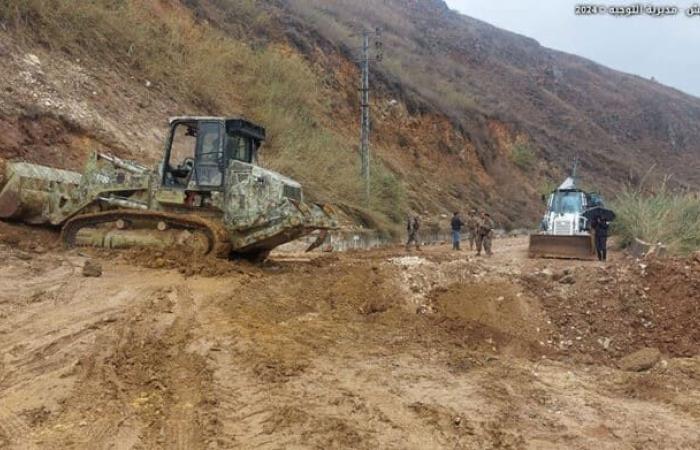
Despite the ceasefire agreement between Israel and Hezbollah, ceasefire violations are increasing, endangering the fragile truce in place. The situation remains tense in southern Lebanon, where the Lebanese army denounced several Israeli violations between Wednesday and Thursday. The Lebanese army has reported Israeli airstrikes and artillery bombardments on Lebanese border towns, exacerbating tensions which remain high.
Israeli ceasefire violations: airstrikes and bombings
Advertisement
The Lebanese army has accused Israel of repeatedly violating the ceasefire agreement, including through aerial incursions into Lebanese airspace and artillery bombardments on border towns. Localities such as Yaroun, Aitaroun and Aita al-Shaab have been targeted by Israeli artillery fire, fueling fears of a resumption of hostilities. According to the Lebanese army, these violations are closely monitored and transmitted to the competent authorities to respond accordingly.
Israeli strikes were not limited to artillery bombardments. On Wednesday, Israel also carried out an airstrike on a site believed to house Hezbollah medium-range rockets near Sidon, an action that Israel notified in advance to the United States, as an Israeli official reported to Axios. Although these strikes were justified by Israel as a preemptive action against Hezbollah, they constituted a direct violation of the agreed ceasefire.
Israeli reactions and internal security adjustments
In response to Hezbollah’s ceasefire violations and the tense security situation, the Israeli military (IDF) responded with adjustments in its defense lines. According to an IDF statement, changes have been made to the Israeli Home Front Command’s defense guidelines, affecting several areas within Israel. These adjustments were put in place to strengthen internal security, after an assessment of the situation.
The review of restrictions on gatherings in areas such as HaShfela, Yarkon, Dan, Sharon, Samaria, Menashe, Wadi Ara, HaCarmel and HaAmakim, among others, was carried out as part of this new assessment. These changes are being broadcast on official Home Front Command channels and in the dedicated mobile application, aimed at ensuring that the population follows the new security guidelines, while signaling increased caution in the face of potential threats.
The situation in Lebanon: persistent tension despite the agreement
Despite international efforts to maintain the truce, Israeli violations continue to reignite tensions in Lebanon, highlighting the fragility of the ceasefire agreement. The Lebanese army, supported by the international community, continues to denounce these violations, and the situation on the ground remains volatile. The resumption of Israeli strikes on Lebanese territory, after months of intense combat, underlines that peace remains fragile and that it is difficult to guarantee a lasting ceasefire between the two belligerents.
While the truce has brought a welcome break to Lebanese civilians, particularly those who have been forced to flee combat zones, the violence of these recent attacks could jeopardize this relative stability. Lebanon, already in the grip of a deep political and economic crisis, finds itself at a crossroads where each military development could have repercussions on the balance of the country and the security of its citizens.






